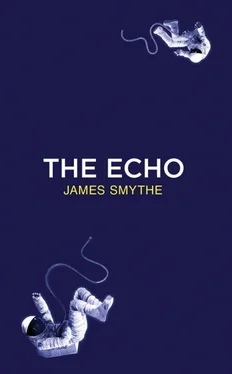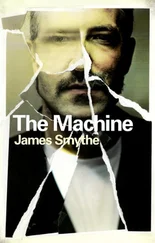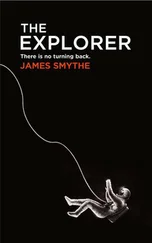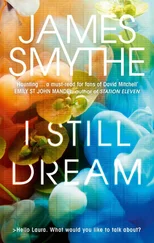The scientist is not the person who gives the right answers; he’s the one who asks the right questions.
– Claude Lévi-Strauss
The sense of pressure on us is immense. There is a feeling that if this fails – and if it were to fail it would be because of me and Tomas, and we are both far too acutely aware of that – but that if this fails, we might not try something like this again. I have seen the receipts for this project of ours. Tomas has signed off on them on my behalf, and we have decided that this is an endeavour that we should undertake. The weight of this endeavour falls onto our shoulders: his and mine. We are separated by only thirty minutes, and soon to be hundreds of thousands of miles. It feels like more already: because he is down there, in the comparative safety of his little bunker, dressed in his shirt and drinking his drink and smoking his cigarettes; and I am here, waiting to leave. I still find it hard to believe that I am the one going. We decided it, as with so many things in our life, on a game. The top bunk of our beds? The front seat of our mother’s car? Always on a game, because somehow that made it fair. If he won, he went to space; if I did, I was the lucky one. Maybe part of the reason that we both wanted it so much is only because the other one did.
But here I am. I am the one up here, and I will be the one going out there into the dark. Tomas has safety: of the lab, the bunker, the hotel that sits adjoining; and of a ground underneath his feet that will not rumble and shudder and shake, and that has no danger of tearing itself apart or falling out of the sky. And he has the girlfriend, the nice house, the nice car. In reality, it’s better that I am the brother who came up here. The only goodbye that I had to say was to him. We shook hands, which we have never ever done before.
I came up here with the crew yesterday. One of the things that Tomas and I decided, when we began this process, was that we would launch from the International Space Station. We decreed changes that would need to happen – the changes that transformed it into the New International Space Station, the same as the old but with what amounts to a loft conversion, a conservatory bolted onto the side, the prefix at the start of the name – and they all happened. Every single one. This is, for now, important. We are important. From here, I can see the planet we left. I have put marks on my window with black marker pen, just to check that we and it are moving as we should. But of course we are: how could we not be? And, on the other side, I can see the moon. I can see all of it. Now, here, I see Mare Fecunditatis and Langrenus. I know these features – a lake and a crater, essentially, named by gravitas and a Latin education rather than utility – almost by heart. I have studied them all my life.
I am worried. I cannot remember when I was last not worried, but that makes perfect sense. My mother once said, Man wasn’t meant to go into space. If he was meant to go into space, God would have made us all angels.
I feel better knowing that Tomas is on the ground, though. That he is watching over us. He is rooted, and that’s a nice feeling. If something goes wrong on the trip (which it will not, because we have covered every single eventuality, because we are those sort of people) he will be there to steer us home. He can override the controls, and there might be lag, there might be a delay, but he would get us home. I am comfortable in that knowledge. It makes me feel good; we have always steered each other.
I call him from the computer. It amazes me: how we can speak from here, with this distance between us. I understand the science completely, and yet. Sometimes I forget how rational this all is, and how explainable, and I revel in the magic. It gets me carried away.
‘You’re up early,’ he says. No platitudes or hellos. We have never had them. It has always been, Pick up where you left off. There is no need to pretend that you don’t know each other. ‘I’d have thought you would be sleeping still.’
‘No,’ I say. ‘I didn’t sleep much at all, really.’ I do not sleep well. I never have.
‘It’s not like you won’t get the chance,’ he says. I switch the call to video, to see his face. He isn’t paying attention: I see the side of his head, cigarette in his mouth. He is looking at something off-screen. When he turns to the screen he notices me, and he grins. ‘How are you feeling about it?’
‘I am not exactly happy,’ I say. I am terrified of being put to sleep. The plan with the ship was that we would accelerate at a rate so much faster than we could from Earth, burning less fuel than if we had to break the atmosphere on this trip, less drag; and then we could coast. Constant acceleration, controlled by the ship itself. The ship has levels she can reach, speeds she cannot surpass, and we would control all that. Tomas and I, we are in control. But when we first move, the acceleration will be such that we will need to be asleep. We have constructed and designed beds that the crew can lie in to protect them, and we will be surrendering to chemicals to make it easier. I despise the idea: I have spent hours (by which I mean days, weeks, months of thought) looking into ways to make this part of the process easier for me. I have argued until I am blue in the face that I will stay there still and silent, and that it will be fine. Tomas has argued in turn that my body might not want to do what I tell it. He’s right, of course: there’s no way I could stand the pressure being put onto us. I would probably end up doing something – moving slightly, fidgeting – and getting myself killed. The concoction that we are using to induce sleep will also introduce a mild skeletal paralytic into our bodies, to ensure stillness and calm. It’s all part of the drive towards efficiency.
This is what Tomas and I offered to the committee with our plan: our sense of efficiency. Everything was to be different to the way that they did it last time. The last trip into space was twenty-three years ago, and they were a ruinous lot. They set us back decades, I believe. When they disappeared, never to be heard from again – as if space is a fairy story, something less than tangible – all funding went. Private investors, the life-line to the modern scientist, disappeared. Everything they did was wrong. I can pick holes. They launched from Earth, even though it made no sense, even back then. They spent money on automated systems because they believed they would add efficiency. They were wrong, as proven by their disappearance. They spent billions developing ridiculous gravity systems, something that the Russians prototyped back in the previous decade concerning gravitomagnetism. And why? So that they could rest! So that they could feel the sensation of a ground beneath their feet! They took a journalist with them, because they spun their mission into something commercial, something outside science. They took a man who didn’t serve a purpose with them on a mission that could have meant something. What did that cost them, that folly? They played everything badly, a product of moneymen rather than scientific design. It drove Tomas and myself insane. And when they went missing, the balloon deflated overnight. No more space travel. There is nothing new out there to find, and no glory to be garnered from dying in the cold expanse of space as they surely did. All the corporations involved distanced themselves, because that isn’t a visual that marketeers like: drink our cola as we spin out into the nothing. Most of us – scientists – felt as if they let us down. That’s a hard truth, but a truth nonetheless. When Tomas and I decided that we would do this, we decided that we would do everything better. This – space, discovery – it deserved better.
Читать дальше
Конец ознакомительного отрывка
Купить книгу












